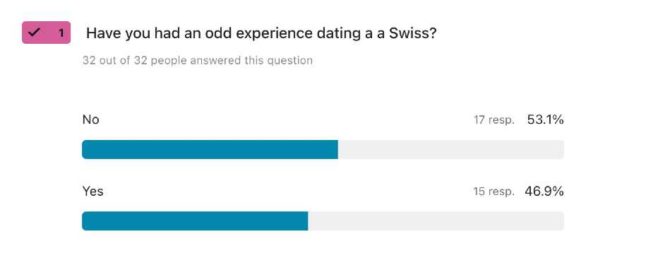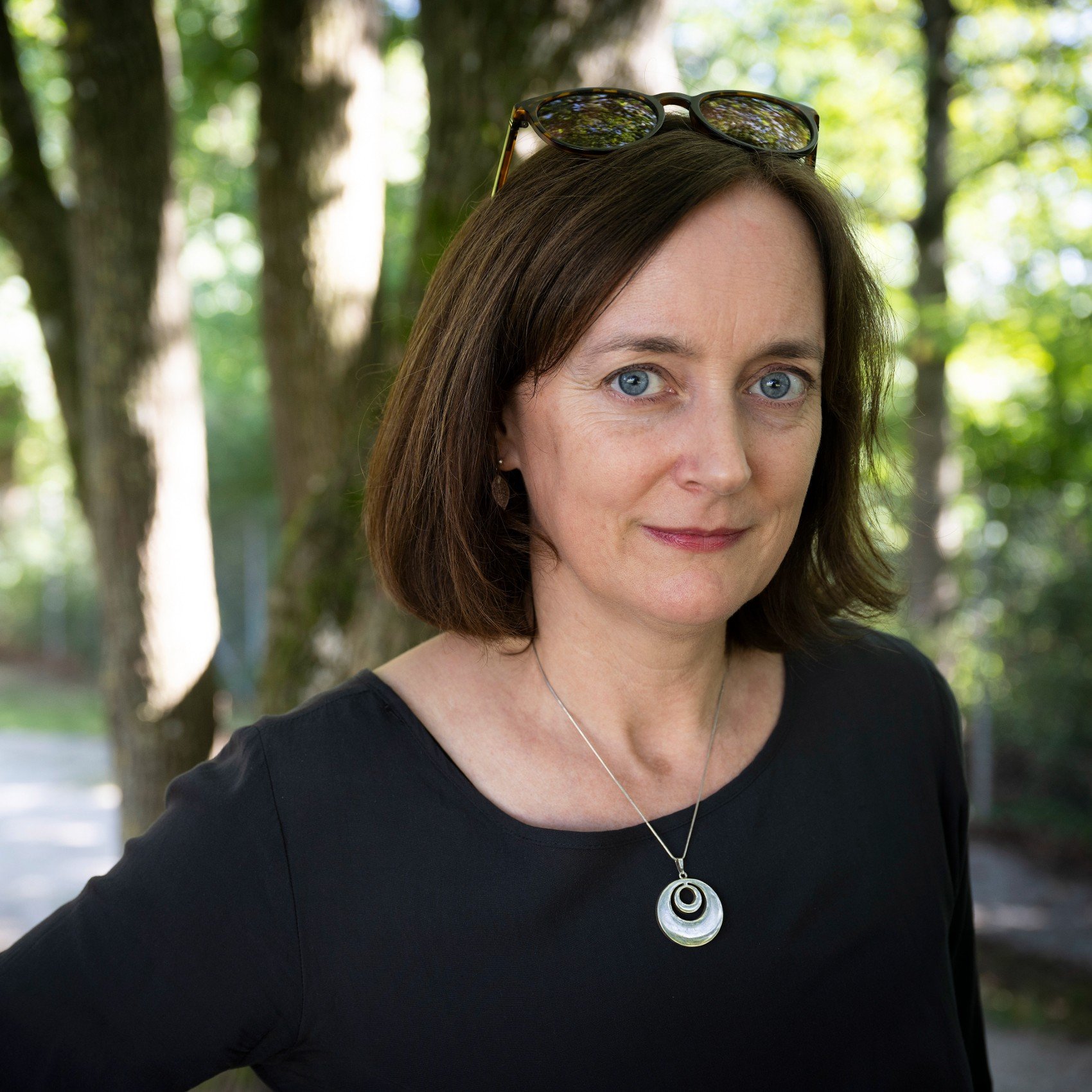Finding love – or pursuing lust – can be tough at the best of times, but a new cultural environment will undoubtedly throw up its own challenges.
These differences can be fun, surprising or downright shocking.
We asked our readers last year about their dating life in Switzerland. We wanted to know if they’d had any struggles or challenges – and how they could avoid them.
Half had an ‘odd experience’
We had just over 30 responses to the survey, which is a relatively strong result for any Local Switzerland poll not focused on Covid measures.
Approximately half – 53.1 percent – said they’d had an odd experience when dating someone from Switzerland. The rest – 46.9 percent – said they had not.

‘Cold’, ‘closed’ and ‘cheap’
For those who said they had an odd experience, we got a full spectrum. Some of the responses were similar to previous reader callouts, while others were somewhat surprising.
Jessica, who lives in Lucerne, said the Swiss – perhaps the richest country in Europe – can sometimes be cheap dates.
“He claimed he forgotten his wallet and (on the) second date, the same excuses”.
Several readers said the person they dated was “cold” and would not open up.
READ MORE: Are the Swiss really unfriendly – or are foreigners to blame?
Mariah, who lives in Zurich, said Swiss men can be closed and may not want you to be a part of their lives.
“I am Brazilian and come from a very open and affectionate culture. I was dating a Swiss-French guy for 2 months and one day he organised a trip to the mountains.
“He was during the whole way in the train talking about how amazing his birthday party would be in a few weeks and “everyone” would be there but he was never mentioning to invite me.”
“I mentioned to another Swiss friend and she said this is normal.”
Another reader, from Zurich, agreed, saying anyone making themselves vulnerable could mean they get hurt.
After telling a Swiss German man relatively early on that she loved him, the relationship changed permanently.
“As soon as I had sent it, I realised “OMG, that is not what I meant to send…”, she told The Local.
READ MORE: Great salaries but ‘no human warmth’: Your views on living and working in Geneva
“It was not the way I had felt (yet), but the previously very cheeky and chatty (by Swiss German standards) guy suddenly started responding in typical very polite Swiss style, and only when I messaged him.”
“This might have scared off someone from another culture, but as the Swiss Germans typically take their time to get to know people it was obviously unforgivable.”
Simon, who lives in Nyon, said he struggled with Swiss women.
“Be careful, they are very feminist and can be domineering.”
What advice do you have for dating a Swiss?
Mariah said it was important to have a clear conversation about boundaries and expectations.
“Don’t assume you will be part of their life without talking openly about it and don’t assume the relationship status either.”
Another, from Zurich, said you should think twice about what messages you send as the Swiss can be quite literal.
“Curate messages carefully. Things can be taken very literally, and not easily be laughed off as a slip of the tongue / Freudian slip!”
Claudia said some cultural norms can be surprising at first.
“They are super comfortable getting changed (naked) in public”, she said.
She did however say that foreigners criticising the Swiss for being closed minded should take a good hard look in the mirror first.
“Actually they are more fun than we think! Be open minded!”





 Please whitelist us to continue reading.
Please whitelist us to continue reading.
Member comments